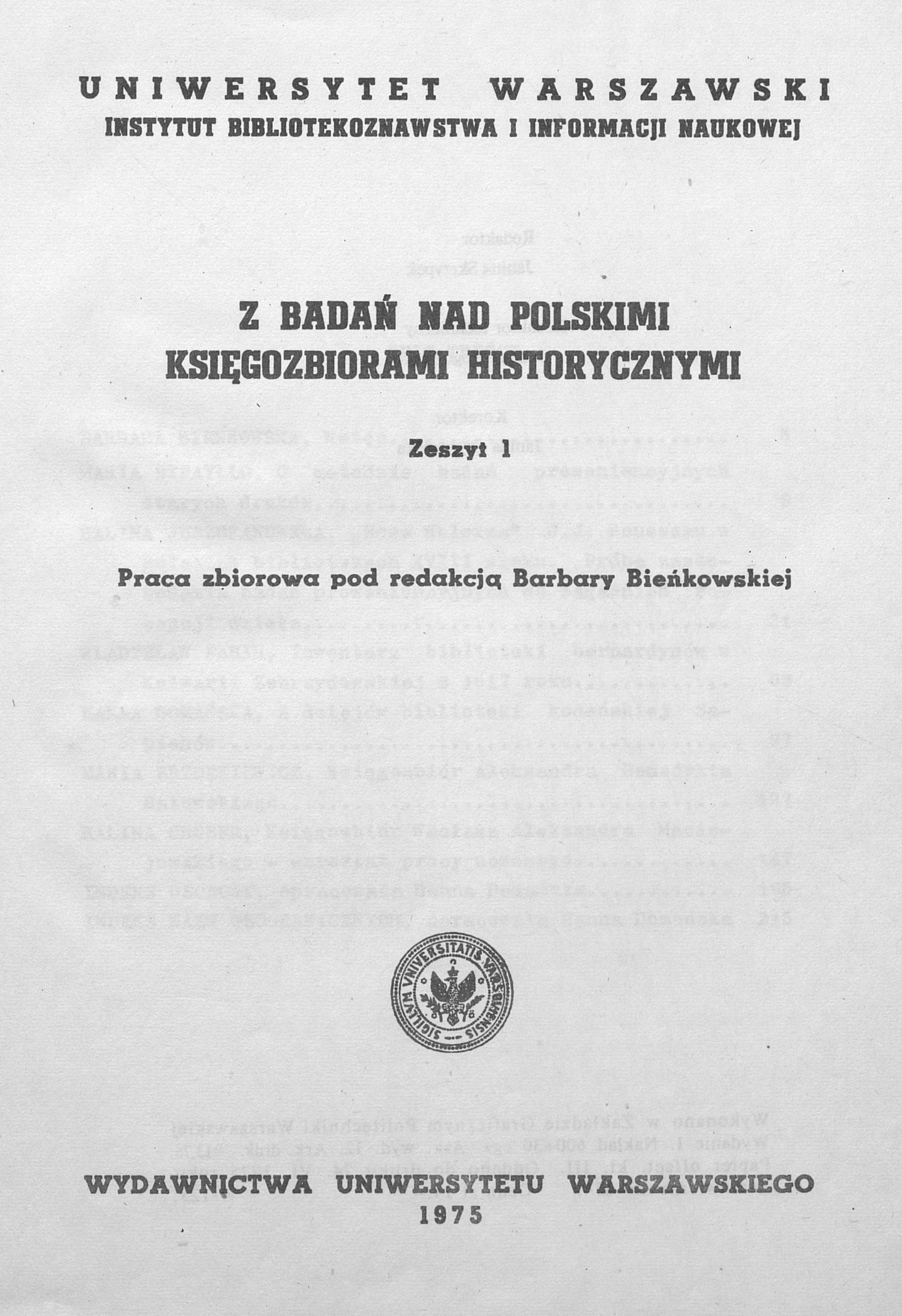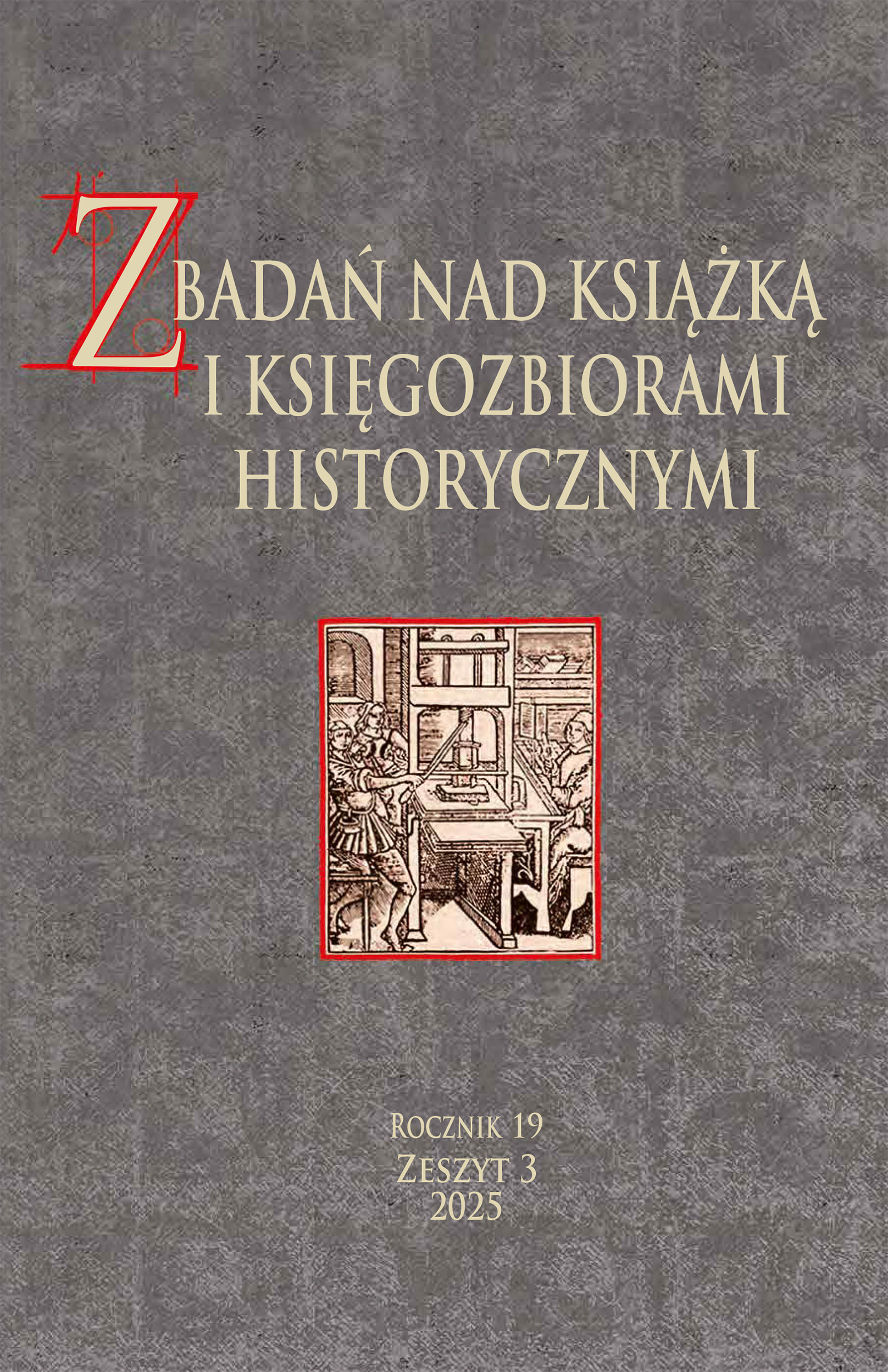J.J. Russeau’s „New Heloise” in Polish libraries of the 18th century. The provenance method applied in studies on text reception
DOI:
https://doi.org/10.33077/uw.25448730.zbkh.1975.330Keywords:
methodology of bibliology, provenance, provenance research, proprietary marks, reading.Abstract
The article discusses reception (readers’ attitudes and history) of the New Heloise by Jean-Jacques Rousseau, the work of great success in the 18th century. The findings were gathered during provenance studies realised for the Research Unit of the University of Warsaw Library after the year 1959. Research sample included 18th century copies of the novel preserved in Polish libraries (time limit: 1761-1800). The list of these editions were completed after inquiries and studies on particular volumes. The author developed an inventory of 155 found volumes, and compared it with bibliographies of Russeau’s works. Then she was looking for provenance marks in each copy, to settle their owners (e.g. profiles were offered of the most eminent enthusiasts of Rousseau works in Poland during the Stanislaw August times) and finally concluded, which editions reached Poland (mostly those from Geneva) and were most sold.







